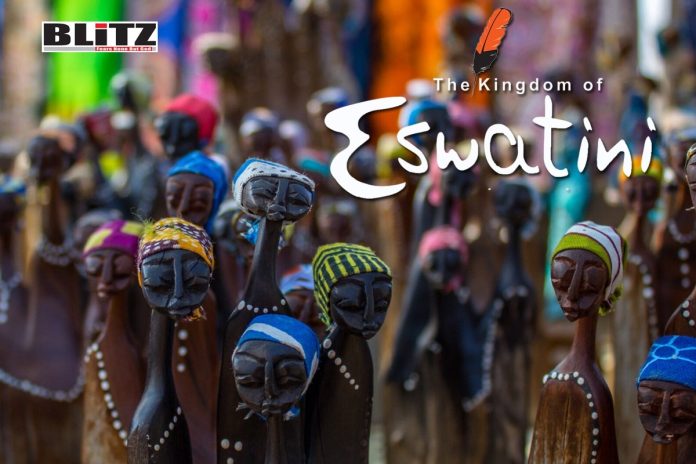Nestled among undulating hills and verdant sugar cane fields, Matsapha, a quaint industrial town in central Eswatini, exudes the charm of picturesque African countryside. Yet, behind this tranquil visage, a narrative of displacement, economic mismanagement, and suspected money laundering unfolds, casting a shadow over the local community. The once idyllic landscape belies the upheaval and uncertainty faced by its inhabitants, illustrating a stark contrast between outward serenity and the underlying turmoil within.
Musa Motsa, a 51-year-old farmworker and father of six, has deep roots in this land. His family tended to crops and fetched water from a nearby spring until their lives were upended by a forced eviction in 2012. Alongside nearly 180 others, they were uprooted to clear the path for the Royal Science and Technology Park, an SEZ championed by the government as a catalyst for new business opportunities.
Conceived by Eswatini’s absolute monarch, King Mswati III, the SEZ was envisioned as a catalyst for economic growth and technological advancement. However, a visit to this purported oasis of opportunity reveals a landscape marred by neglect. Vacant plots are overtaken by weeds, expansive boulevards lead to nowhere, and a lone government office complex stands as a surreal testament to failed ambitions.
Between 2012 and 2014, the evictions to make way for the SEZ rendered families like Motsa’s homeless. Despite assurances of compensation and alternative accommodations, many found themselves without support. Motsa now lives in a modest dwelling provided by his employer, serving as a constant reminder of the upheaval that has reshaped his life.
While the majority of Eswatini’s population grapples with poverty and unemployment, King Mswati III and his expansive family lead lives of opulence. The king’s collection of bespoke watches alone is valued at millions of dollars, contrasting starkly with an economy smaller than that of Fiji.
The SEZ was intended to attract foreign investment through favorable incentives like tax exemptions and profit repatriation. However, leaked documents paint a troubling picture of the SEZ’s true nature. Two gold refineries, Mint of Eswatini Pty. Ltd. and RME Bullion Pty. Ltd., ostensibly operate within the SEZ. Yet, neither existed as legitimate businesses. Mint of Eswatini served as a conduit for suspicious transactions, while RME was suspected of participating in illicit gold trading activities.
Eswatini’s authorities grew increasingly concerned that the SEZ was being exploited to evade taxes, move money illegally, and potentially launder illicit funds. Alarm bells rang at the Central Bank of Eswatini and the Eswatini Financial Intelligence Unit (EFIU), leading to an investigation into the activities of individuals closely linked to the king.
Among those under scrutiny were Swazi jeweler Keenin Schofield, who is married to one of King Mswati III’s daughters, and Alistair Mathias, a secretive Canadian businessman involved in gold trading and construction. Schofield’s lavish lifestyle and high-profile clientele, which includes celebrities and royalty, stand in stark contrast to his past brushes with the law, including a conviction for diamond smuggling in Zimbabwe.
Mathias, on the other hand, operates out of Dubai and claims to have close ties with political elites across Africa. His involvement in a legal dispute over a gold business was noted by the EFIU, but his alleged role in a sprawling gold smuggling and money laundering operation exposed by Al Jazeera in 2023 was not mentioned in the leaked documents.
The leaked EFIU documents revealed a series of suspicious transactions involving Schofield, Mathias, and a South African cash-in-transit company. In less than a month, transactions totaling approximately $4.7 million were made, with funds ultimately ending up in Dubai. The EFIU suspected that these transactions were part of an illicit operation to launder money and smuggle gold through Eswatini, connecting the kingdom to a broader network of criminal activity across southern Africa and Dubai.
Paul Holden, a money laundering expert, highlighted Dubai’s role as a jurisdiction that makes money laundering easy, making it challenging for authorities to track illicit financial flows. The flow of money from South Africa, through Eswatini, and finally to Dubai underscored the potential for the SEZ to become a hub for money laundering and illicit financial activities.
The Special Economic Zone (SEZ) in Eswatini was envisioned as a catalyst to elevate the nation to “first-world status.” However, its outcomes have diverged significantly from this optimistic vision. Rather than fostering prosperity, the SEZ has resulted in community displacement, making people vulnerable. The economy, instead of thriving, is now susceptible to exploitation. Moreover, allegations of corruption and the unchecked exercise of power have further complicated Eswatini’s challenges.
As Eswatini’s authorities persist in probing the affairs within the SEZ, the story of Musa Motsa and others akin to him resonates as a poignant testimony to the toll exacted by misguided economic aspirations. In a nation besieged by widespread poverty and staggering unemployment rates, the dream of a brighter tomorrow remains frustratingly out of reach for countless individuals. Their struggles are magnified by the opacity surrounding the operations within the SEZ and the looming specter of corruption entrenched within the upper echelons of power.



